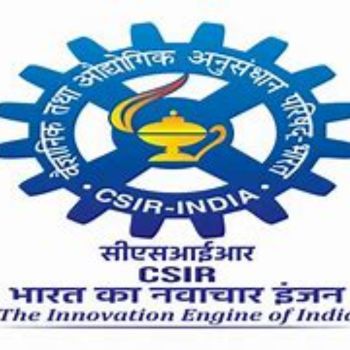A Ph.D in Ecology and Environmental Sciences is a study program for people who want to become doctors. It usually takes 3 to 6 years to finish. It is perfect for students who want to learn a lot, do their own study, and work on important environmental problems like protecting biodiversity, tackling climate change, figuring out how things affect the environment, managing natural resources, reducing pollution, and restoring ecosystems.
To get into a Ph.D. program in Ecology and Environmental Sciences, you need to have a Master's degree (M.Sc./M.Tech./M.E. or equivalent) from a recognised university with at least 55% overall marks in a related field, such as environmental sciences, ecology, life sciences, botany, zoology, forestry, geography or any other related field. Usually, national-level admissions exams like UGC-NET, CSIR-NET, or university-specific research ability tests are used to decide who gets in and interviews are held afterward.
The total costs of the Ph.D. program range from INR 50,000 – INR 3,00,000 for the whole program, based on the college. Pondicherry University and Nalanda University are two of the best colleges that offer this study. People know these universities for their specific research centres, strong academic mentoring, and partnerships with environmental groups in the United States and other countries.
People who have earned a Ph.D. in Ecology and Environmental Sciences can work in university institutions, research centres, government agencies, non-governmental organisations (NGOs), foreign groups, and consulting companies. Most entry-level jobs pay ranges between INR 8 LPA – 10 LPA, and higher pay is available for people with experience, such as studying in other countries, publications, or roles in foreign projects.
Table of Contents
- Ph.D Ecology and Environmental Sciences Key Highlights
- What is a Ph.D in Ecology and Environmental Sciences?
- Why Study Ph.D Ecology and Environmental Sciences?
- Who should study Ph.D Ecology and Environmental Sciences?
- Ph.D Ecology and Environmental Sciences Eligibility Criteria
- Ph.D Ecology and Environmental Sciences Entrance Exams 2025
- Ph.D in Ecology and Environmental Sciences Colleges in India
- Ph.D Ecology and Environmental Sciences Admission Process 2025
- Ph.D Ecology and Environment Sciences Syllabus
- Ph.D Ecology and Environmental Sciences Job Opportunities in India
- Ph.D Ecology and Environmental Sciences FAQs
Ph.D Ecology and Environmental Sciences Key Highlights
Below are the key highlights of the Ph.D Ecology and Environment Sciences course in India:
What is a Ph.D in Ecology and Environmental Sciences?
Ecology and Environmental Sciences Ph.D. students do original study and write a thesis on a specific subject, like how to adapt to climate change, protect species, measure the effects of development on the environment, promote sustainable development, protect ecosystem services or reduce pollution. Students do most of their research on their own, but they also participate in academic classes, studies in the environment, joint research groups, and workshops led by professors.
They learn about important ecological theories, do tests in the field and in the lab to track changes in the environment, gather and examine data on ecosystems, and use scientific methods to solve important issues in climate science, resource management, and conservation.
Why Study Ph.D Ecology and Environmental Sciences?
People who really want to understand natural processes, fix environmental problems, and help make the world more sustainable should get a Ph.D. in Ecology and Environmental Sciences. Given below are some of the points on why you should study a PhD in Ecology and Environmental Science:
- As environmental problems like climate change and species loss get worse and more important, there is a greater need for highly skilled environmental scientists in India and around the world.
- A lot of grads go on to work as conservation scientists, environmental experts, environmental researchers, or professors at universities. They help come up with long-lasting answers, give advice on environmental policy, and lead studies that involve people from different fields, like restoring habitats, adapting to climate change, and building green infrastructure.
- Students learn advanced skills in field study methods, science communication, data analysis, and working together with people from different scientific fields. It gets them ready to protect environments and natural resources on a national and international level in a useful way.
Who should study Ph.D Ecology and Environmental Sciences?
People who really want to learn about natural environments, environmental change, and sustainable development through advanced scientific study and cross-disciplinary research should get a Ph.D. in Ecology and Environmental Sciences.
- Graduates in environmental science, life sciences, forestry, geography, botany, zoology, or related fields who want to specialise in areas like climate science, ecosystem restoration, biodiversity management, or conservation ecology will find this program intellectually stimulating and useful for their careers.
- The academic depth and analytical rigour of this doctorate will help environmental workers and researchers who want to become teachers, professors, or curriculum creators at universities, research institutes, or international education bodies.
- People who want to be leaders in government environmental agencies, climate-focused NGOs, multilateral organisations, or global study networks will find that the course gives them the skills they need to make policy, plan for sustainable resources, and keep an eye on ecosystems.
- This program is best for people who want to make a permanent difference in public policy, environmental protection, and sustainable development by combining strong academics with ideas from the field and strategies backed by science.
Ph.D Ecology and Environmental Sciences Eligibility Criteria
To enroll in a Ph.D in Ecology and Environmental Sciences in India, candidates have to meet some educational and admission requirements. Mentioned below are the Ph.D Ecology and environment sciences eligibility criteria:
- Candidate must have completed a Master’s Degree from any recognized university or institution with a minimum of 55% marks or an equivalent grade.
- Admission to this course is based on the entrance exam scores. Students need to have valid entrance exam scores in exams like CSIR UGC NET.
Ph.D Ecology and Environmental Sciences Entrance Exams 2025
For pursuing a Ph.D in Ecology and Environmental Sciences in India, various national/state/university-level entrance examinations are required to be taken. Some of the top Ph.D Ecology and environment sciences entrance examinations in India are given below:
Ph.D in Ecology and Environmental Sciences Colleges in India
Various institutions in India are offering a Ph.D in Ecology and Environmental Sciences course. Some of the best colleges in India for Ph.D Ecology and environmental sciences have been mentioned below, along with their approximate course fee:
Ph.D Ecology and Environmental Sciences Admission Process 2025
Admission to the PhD in Ecology and Environmental Sciences course is based on the valid entrance exam score; students need to have a valid entrance exam score in the entrance exams.
Given below is the step-by-step admission process for the Amrita Vishwa Vidyapeetham for the PhD Ecology and Environment Sciences course:
Step 1: Go to the official Pondicherry University website and fill out the online application form with information about yourself, your colleges, and how to reach you. You can upload scanned copies of your signature, a passport-sized picture, and all of your important academic records. To finish registering, pay the application fee online.
Step 2: Take the Pondicherry University Entrance Test or show a valid (UGC/CSIR) number if you have one. It checks how good you are at studying, how much you know about the subject and how analytical you are.
Step 3: People who do well on the written test will be asked to come in for a personal interview (PI). You might be asked to talk about your long-term goals, academic background, and study plan during the interview.
Step 4: A merit list will be posted on the official website based on the entry test, PI and the college's record as a whole. Those who were shortlisted will be contacted again about the next steps.
Step 5: If you are chosen, you will get an offer of provisional admission. Accept the offer online and pay the fee to confirm your entry through the payment site by the due date.
Step 6: Go to the Pondicherry University site in person to go through the paper proof process. Bring original things like grade reports, degree awards, photo IDs, entrance test scores, and passport-sized photos to prove who you are.
Step 7: Follow the Pondicherry University fee system and pay the rest of the college fees. As soon as the university confirms receipt of your payment and checks your papers, you will be officially accepted into the Ph.D. Ecology and environment sciences program.
Required Documents:
- 10th and 12th mark sheets
- UG Certificates
- ID proofs
- Transfer certificate
- Character certificate
- Medical certificate
- Category Certificate (if applicable)
Ph.D Ecology and Environment Sciences Syllabus
The syllabus for Ph.D Ecology and Environment Sciences in India is more or less the same in the colleges offering the course. The syllabus may slightly differ depending on the curriculum followed by the institute.
For reference, the syllabus for one such specialisation in Ph.D Ecology and Environment Sciences at Nalanda University is given below:
Ph.D Ecology and Environmental Sciences Job Opportunities in India
Ph.D Ecology and environmental sciences graduates can have job roles in multiple fields. Some of the common job roles for Ph.D Ecology and environment sciences graduates in India are given below:
Ph.D Ecology and Environmental Sciences FAQs
What kinds of jobs can someone with a Ph.D. in Ecology and Environmental Sciences get?
With a Ph.D. in Ecology and Environmental Sciences, you can get high-level jobs in colleges, study groups, environmental consulting companies, government agencies, non-governmental organisations (NGOs), and foreign organisations. After graduating, people can work as assistant teachers, senior researchers, sustainability officers, environmental policy experts or project leads in fields like natural resource management, climate change, and protecting biodiversity. Some of them also work for global groups like UNEP, FAO, or WWF, or they help make state policies and action plans.
What type of tools and skills do Ph.D. academics in this discipline acquire?
For example, students learn how to use GIS software (like ArcGIS and QGIS), data analysis tools (like R and SPSS), and do an environmental effect study. LaTeX, Mendeley, and EndNote are used to teach them how to write study papers. Databases like Scopus, SpringerLink, and Web of Science are also accessed. During the program, students also learn "soft skills" like how to write policy, communicate, and work with people from different fields.
Can Ecology and Environmental Sciences students work on study with people from other fields?
Yes, research that spans different fields is highly promoted. A lot of the time, climate scientists, geographers, urban planners, farmers, public health workers, and economists work together with scholars. They might look into the connection between changing land use and making a living in rural areas, or they might look into how nature affects food security. This makes their study more general and helps them look at tough environmental problems from different points of view.











